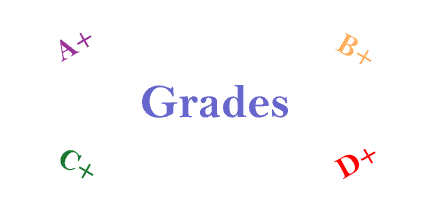GRADE FIVE
Seventh Year of the Course
Arithmetic
1. Denominate numbers, denominate fractions, addition and subtraction of denominate numbers.
2. Multiplication and division of denominate numbers, longitude and time, applications.
3. Percentage
4. Application of percentage not involving the element of time.
5. Interest, simple.
6. Compound interest, partial payments, reviews.
4. Application of percentage not involving the element of time.
5. Interest, simple.
6. Compound interest, partial payments, reviews.
Geography
Complete text-book finished.
Political
1. General study of North America, general study of United States, study of New England States, study of Middle Atlantic States.
2. Southern States, Central States, special study of Indiana
3. Pacific States and Territories, Canada, Danish America, Mexico
4. Central America, West Indies, South America, general study of Europe, study of British Isles.
5. Study of countries of Europe.
6. General study of Asia, Africa, Oceania; reviews.
History
1. Period of discoveries.
2. Settlements: Virginia, Maryland, Massachusetts, and New Hampshire.
3. Remainder of English colonies.
4. French colonies and inter-colonial wars.
5. Causes and events of Revolution to 1777.
Grammar
Study of the parts of speech with the simple sentence.
1. The noun, with the simple sentence; subject, predicate object.
2. The adjective, with the simple sentence; adjective element.
History
1. Period of discoveries.
2. Settlements: Virginia, Maryland, Massachusetts, and New Hampshire.
3. Remainder of English colonies.
4. French colonies and inter-colonial wars.
5. Causes and events of Revolution to 1777.
Grammar
Study of the parts of speech with the simple sentence.
1. The noun, with the simple sentence; subject, predicate object.
2. The adjective, with the simple sentence; adjective element.Spelling
Analysis as in sixth year.
Analysis on basis of difficult spelling.
In the analysis on basis of construction use the words containing the prefixes: a, be, co, en, fore, mis, ant, with, un. Suffixes: age, al, able, ar, ary, dom, en, er, ery, ful, fy, ion, ish, ior, less, let, ly, ment, ness, ous, ship, y. Latin prefixes: ab, ad, ambi, ante, circum, con, extra, in, intro, mis, ob, per, post, pre, pro, preter, re, retro, se, sine, sub, subter, super, trans.
Reading
Besides formal and exhaustive thought analysis, pupils should be lead to reverse the process of analysis and build up compositions upon subjects by reading. Pupils should learn to recognize and define the more common figures of speech, metaphor, simile, etc.
Short biography of John Greenleaf Whittier, William Cullen Bryant, James Fenimore Cooper.
Eighth Year of the Course
Arithmetic
1. Discount, exchange
2. Equations and average
3. Ratio and proportion, partnership
4. Involution and evolution, application of evolution
5. Arithmetical and geometrical progressions
6. Mensuration, analysis, reviews
Physiology (With text-book)
1. Introductory; osseous and muscular systems
2. The skin, the teeth, food and digestion
3. Circulation and respiration
4. Excretion, the nervous system
5. The special senses
6. Sanitary science, effects of narcotics, reviews
History
Adoption of the constitution
Administrations: Washington, Adams, and Jefferson
2. Madisons to Jacksons administrations, inclusive
3. Van Burens to Buchanans administrations, inclusive
4. The great rebellion
5. Administrations from Johnsons to Harrisons
6. Constitution and civil government, reviews
Grammar
Study of the sentence
1. Sentences and their classification; elements, principle and subordinate
2. Kinds of elements; phrases and clauses
3. Rules of syntax, derived and classified
4. Figures of language
5. Reviews of parts of speech
6. Review of the sentence in all of its relation
Spelling
Both forms of analysis and the more common rules of orthography. Study of orthography as in grammar text-book. Latin suffixes: ac, aceous, acy, ate, al, an, ant, ar, ele, ent, escent, ce, ice, id, ile, ive, ise, ism, ist, ite, ity, ive, mony, or, ory, ose, tude, ule, use. Latin primitives: fero, fuo, jacio, frango, gero, pello, struo, facio, do, veno, ago, duco, mitto, dico, video, paro, pono, scribo, tralio, vinco, quaero, curro, verto, audio, cedo.
Reading
Similar work to preceding year. In this grade the object is to lead the pupil to study the selection as literature and not to read much but well, whereas in lower grades he/she needs much matter for practice. Study of more difficult figures of rhetoric. Study of authors: Tennyson, Thackery and Shakespeare
(back to top)

